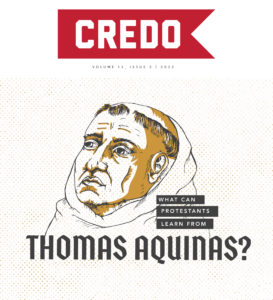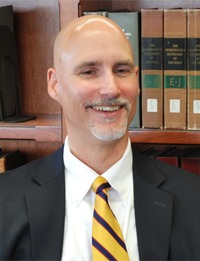
Why I changed my mind about Thomas Aquinas
The latest issue of C redo Magazine focuses on Thomas Aquinas. The following is one of the issue’s featured columns by R. Scott Clark. Dr. Clark has taught church history and historical theology since 1995 at Wheaton College, Reformed Theological Seminary, Jackson, Concordia University, Irvine, and Westminster Seminary California.
redo Magazine focuses on Thomas Aquinas. The following is one of the issue’s featured columns by R. Scott Clark. Dr. Clark has taught church history and historical theology since 1995 at Wheaton College, Reformed Theological Seminary, Jackson, Concordia University, Irvine, and Westminster Seminary California.
As a young convert from unbelief to evangelical Christianity, in the mid-1970s, Francis Schaeffer (1912–84) was one of several evangelical writers who threw me an intellectual lifeline. From him I learned that my mind mattered to my faith, that Christians could engage with the culture in a thoughtful (and not merely reactionary) way. Nevertheless, aspects of his fundamentalist past remained with him. Further, he was briefly a student of and influenced by Cornelius Van Til (1885–1987) and his fairly relentless hostility to Thomas (c. 1224–74).
Thus, when I began to discover the Reformed confession in 1980–81, through Schaffer and Van Til I imbibed a fairly strong bias against Thomas, whom I had never read for myself. Through Schaffer and Van Til I imbibed a fairly strong bias against Thomas, whom I had never read for myself. Click To Tweet I knew him only as the Roman Catholic theologian par excellence. From Van Til, I knew of Thomas only as “the great master of scholasticism,” and I inferred that “scholasticism” was code for rationalism, i.e., granting to reason the position of teacher (magister) rather than servant (ancilla).[1] I had the impression that Thomas had been mugged by Aristotle.[2] Indeed, I was given to think that Thomas was the source of much that ailed Christianity. In one tour de force, Van Til jumps from Aristotle, to Aquinas, to Immanuel Kant (1724–1804).[3] The two main things that I really took away from my brief early encounters with Thomas (mea culpa) were that he sought to demonstrate the existence of God in the “five ways” (ST, 1a.2, art. 3) and that he taught a “nature-grace dualism.”
When I began reading the orthodox Reformed writers for myself, however, I was surprised to see how favorable they were to Thomas. It put before me a choice: the neo-Calvinist account of our relations to Thomas (and others) or the classical Reformed approach to Thomas. Eventually, after reading Thomas more deeply for myself, I chose the latter.

